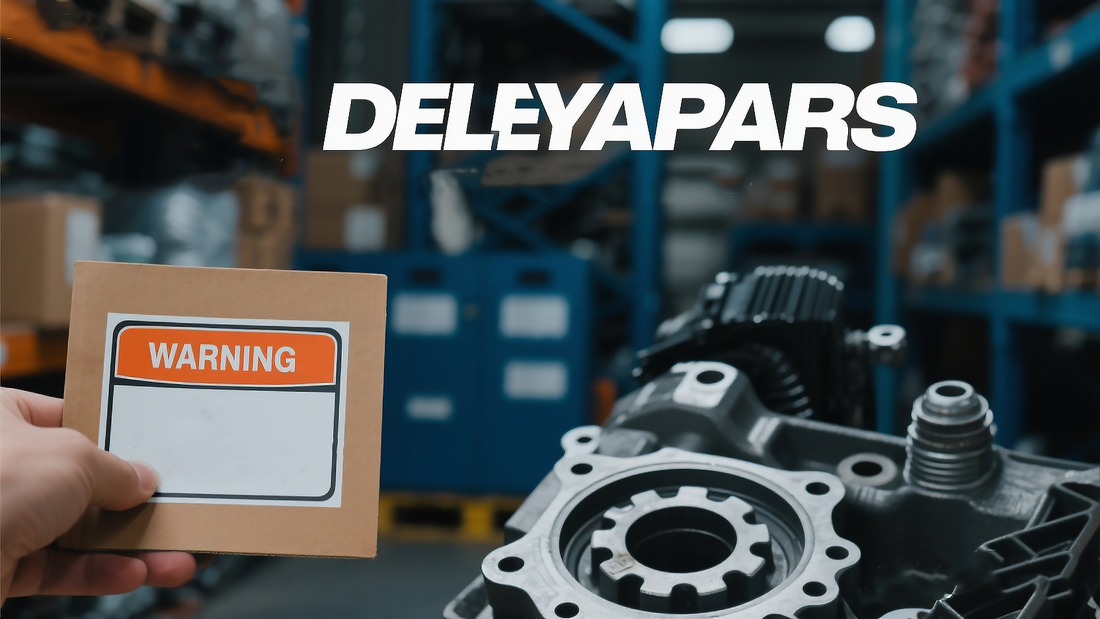
How to Avoid Buying Low-Quality Remanufactured Parts: 5 Warning Signs and DELEYAPARS’ Quality Standards
Share
The global remanufactured auto parts market is projected to reach $120 billion by 2027 (Allied Market Research), driven by cost savings and a growing focus on sustainability. While these parts offer a budget-friendly option for businesses and consumers, not all remanufactured parts are created equal. In this article, I'll help you spot low-quality parts and show you how to avoid costly mistakes that could damage your equipment.
1. Five Warning Signs: How to Identify Low-Quality Remanufactured Parts
Warning Sign 1: Suspiciously Low Pricing
If the price of a part is significantly lower than the market range, it's likely low quality. For example:
| Part Type | Fair Reman Price Range | "Too Good to Be True" Price |
|---|---|---|
| Alternator | $120 - $250 | Under $80 |
| Fuel Injector | $90 - $200 | Under $50 |
Warning Sign 2: No Warranty or Vague Warranty
A reputable supplier will offer a warranty of 12 to 24 months. Watch out for:
- "30-day warranty only"
- "Labor not included"
Warning Sign 3: Poor Surface Finishes
Inspect the surface of the part closely:
- Grinding marks may indicate manual rework instead of precision CNC machining.
- Mismatched colors or painted covers could be hiding worn-out parts.
Warning Sign 4: No Core Inspection Report
Quality remanufacturers provide detailed core inspection reports, such as:
- Core grading (A/B/C) based on wear
- X-ray/MRI scans for internal cracks (common in cylinder heads)
Warning Sign 5: Missing Performance Upgrades
Genuine remanufacturing processes improve on OEM weaknesses. For example, at DELEYAPARS, we replace cast iron pistons with forged aluminum and upgrade to polymer-coated bearings, reducing friction by 18%.
2. DELEYAPARS' Quality Standards: How We Do It Right
At DELEYAPARS, we adhere to strict standards to ensure the highest quality remanufactured parts. Here's how we do it:
- Core Disassembly & Cleaning: We use ultrasonic cleaning and laser decarbonization to prepare each part thoroughly.
- Precision Engineering: Each part undergoes CNC machining to restore tight tolerances (±0.001") and dynamic balancing for rotating parts.
- Performance Upgrades: For instance, our remanufactured turbochargers feature Garrett GT-series billet wheels (vs. OEM cast) and high-temp ceramic bearings for improved performance.
- Rigorous Testing: Every part goes through a 72-hour dyno test under load, followed by oil pressure and leak checks to ensure reliability.
3. How to Verify Quality: 3 Simple Steps
Ask for Certifications
Ensure your supplier is ISO 9001/14001 certified and a member of the Automotive Parts Remanufacturers Association (APRA).
Request Test Data
Ask for before-and-after test data, such as:
- Compression ratios
- Fuel injector flow rates
If the supplier can't provide this data, proceed with caution.
Check Customer Reviews
Search for reviews and forum discussions about the brand, particularly failure stories. You can also ask the supplier for customer references within your industry.
Conclusion: Don’t Gamble with Your Equipment
As I always say, "Buying cheap remanufactured parts is like using rebuilt parachutes – the savings aren't worth the risk." At DELEYAPARS, we stand behind our products with a 24-month warranty (including labor), full traceability from core to finished part, and free technical support for installation.
When it comes to your equipment, don't take risks with low-quality parts. Invest in reliability, performance, and long-term savings.